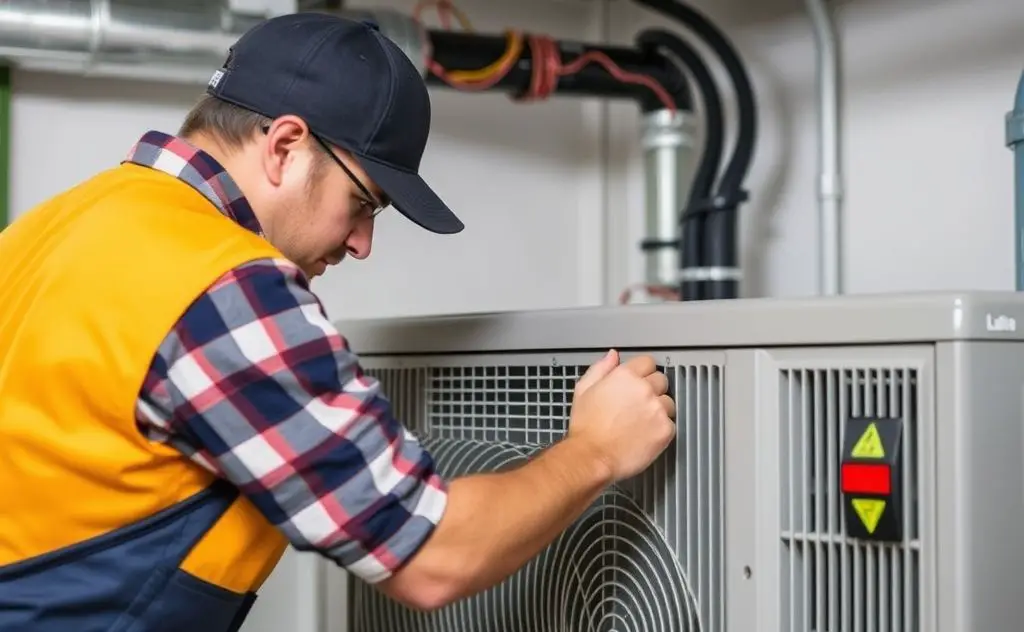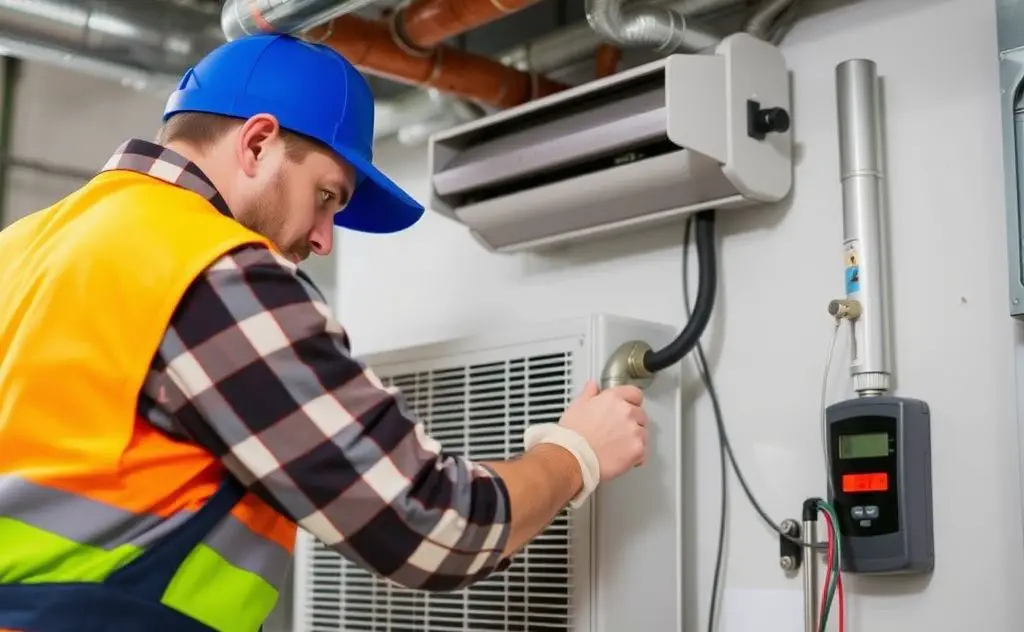Being an HVAC technician offers job stability, competitive wages, diverse work environments, opportunities for advancement, and the satisfaction of solving complex climate control issues.
HVAC technicians enjoy rewarding careers with excellent pay, job security, and opportunities for growth. As climate control systems become more complex, skilled technicians are in high demand across residential, commercial, and industrial sectors.

1. Strong Earning Potential
HVAC technicians earn competitive wages with significant upside potential:
| Experience Level | Average Annual Salary |
|---|---|
| Entry-Level | $35,000 – $45,000 |
| Mid-Career | $50,000 – $65,000 |
| Master Technician | $75,000+ |
Specialized technicians working with advanced systems like tankless water heaters or commercial refrigeration can earn even more. Many companies offer performance bonuses and overtime pay during peak seasons.

2. High Job Demand
The HVAC industry is projected to grow 5% from 2021-2031 (faster than average). Key factors driving demand:
- Increasing installation of energy-efficient systems
- Older technicians retiring
- Year-round need for climate control
- New construction projects nationwide
3. Career Advancement Opportunities
HVAC offers clear paths for progression:
Technical Specializations
- Commercial refrigeration
- Industrial HVAC systems
- Geothermal technology
- Smart home integration
Leadership Roles
- Service manager
- Project supervisor
- Business owner
Many technicians eventually start their own companies. The relatively low startup costs make HVAC an excellent field for entrepreneurs.
4. Hands-On, Varied Work
HVAC technicians enjoy diverse daily tasks including:
- System installations
- Preventive maintenance
- Troubleshooting complex issues
- Customer education
No two days are exactly alike. Technicians work with cutting-edge equipment like modern heating systems while solving unique challenges at each job site.
5. Minimal Education Requirements
Unlike many skilled trades, HVAC careers don’t require extensive schooling:
- Most technicians complete vocational programs in 6-12 months
- Apprenticeships combine paid work with training
- Certifications (like EPA 608) can be earned quickly
This allows new technicians to start earning quickly without student debt.
6. Job Security
HVAC services remain essential regardless of economic conditions. People always need:
- Heating in winter
- Cooling in summer
- Year-round ventilation
Technicians who specialize in critical systems like commercial refrigeration enjoy particularly strong job stability.
7. Opportunities to Help People
HVAC technicians provide vital services that:
- Keep families comfortable
- Protect vulnerable populations from extreme temperatures
- Improve indoor air quality
- Prevent dangerous system failures
8. Growing Technical Field
Modern HVAC systems incorporate advanced technologies:
- Smart thermostats and IoT integration
- Variable refrigerant flow systems
- Energy recovery ventilation
- Solar-assisted heat pumps
Technicians continuously learn new skills, keeping the work engaging.
9. Flexible Work Environments
HVAC professionals can choose from various settings:
- Residential service
- Commercial/industrial maintenance
- New construction projects
- Specialized sectors (hospitals, data centers)
10. Union Benefits
Many HVAC technicians join unions that provide:
- Higher wages
- Excellent healthcare
- Retirement plans
- Ongoing training
According to BLS data, union HVAC workers earn 20-30% more than non-union counterparts.
